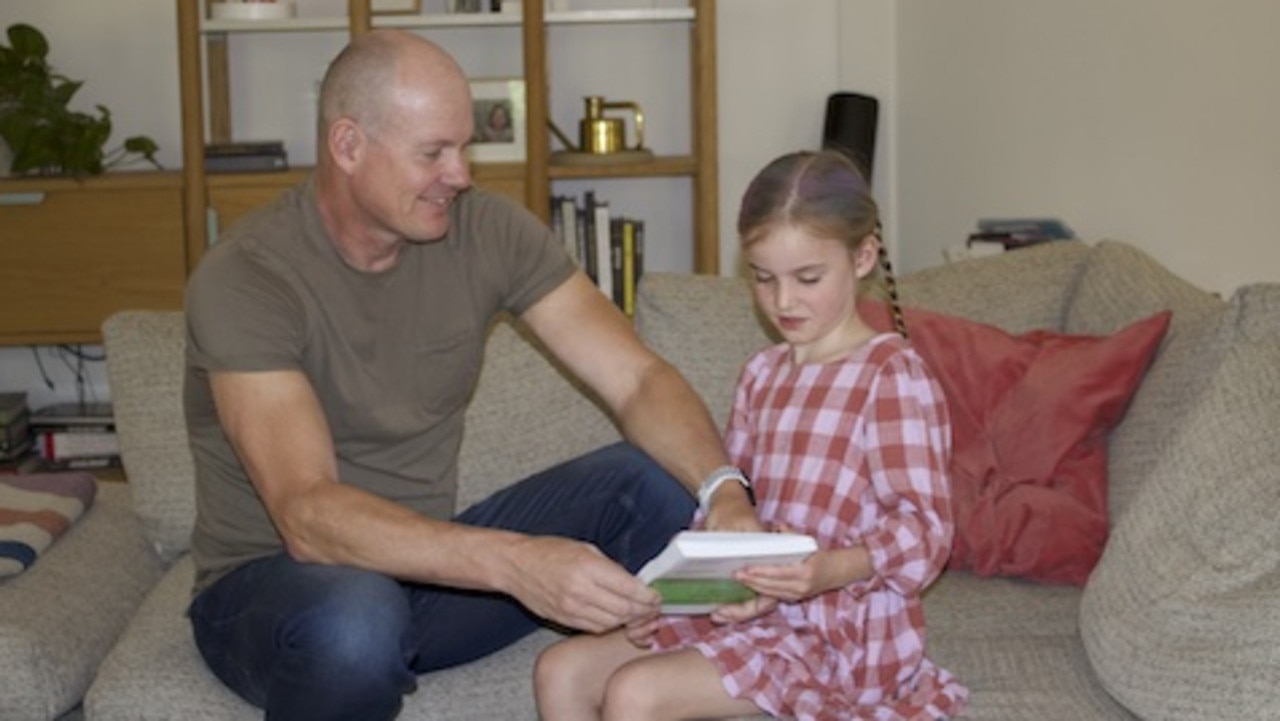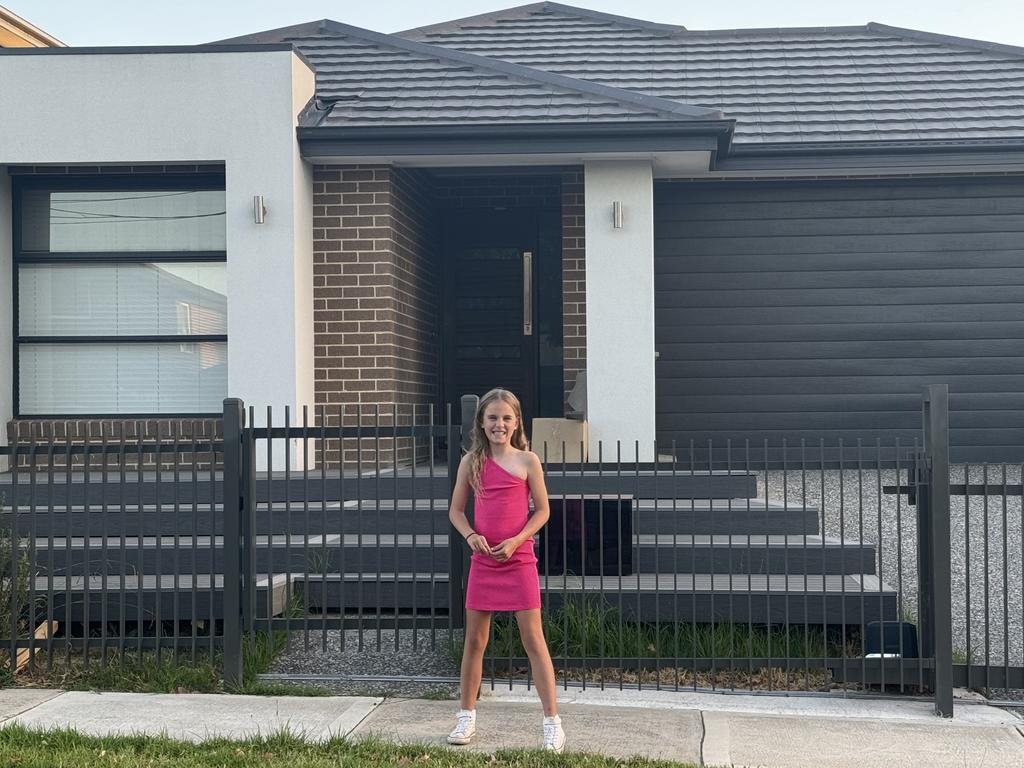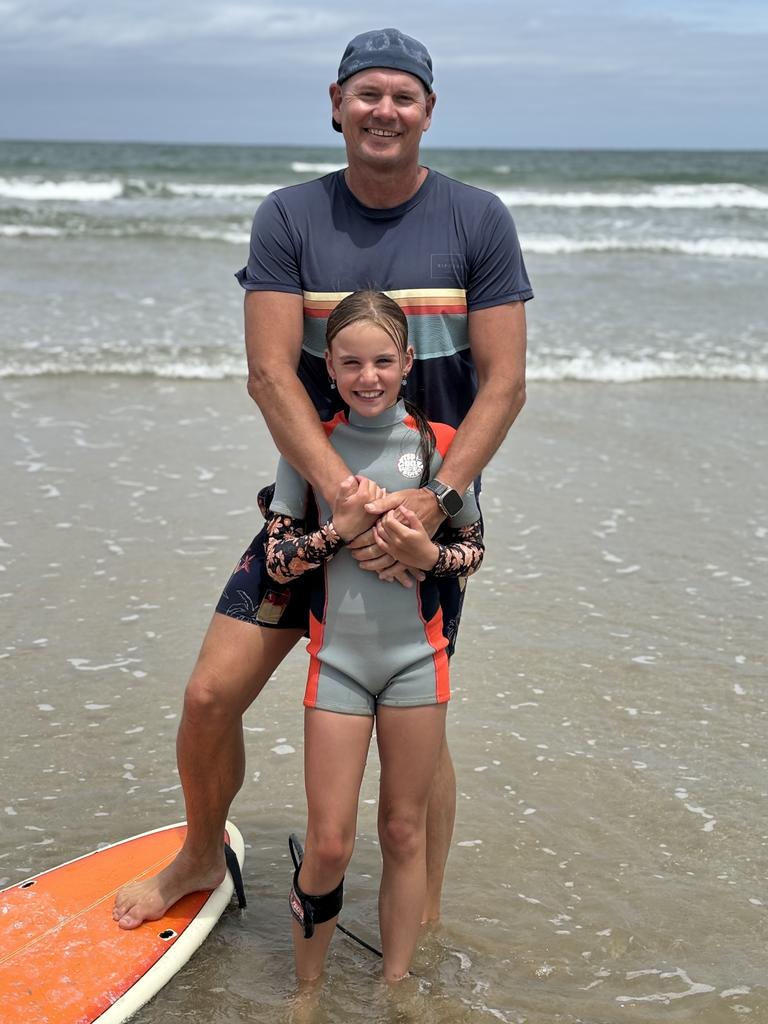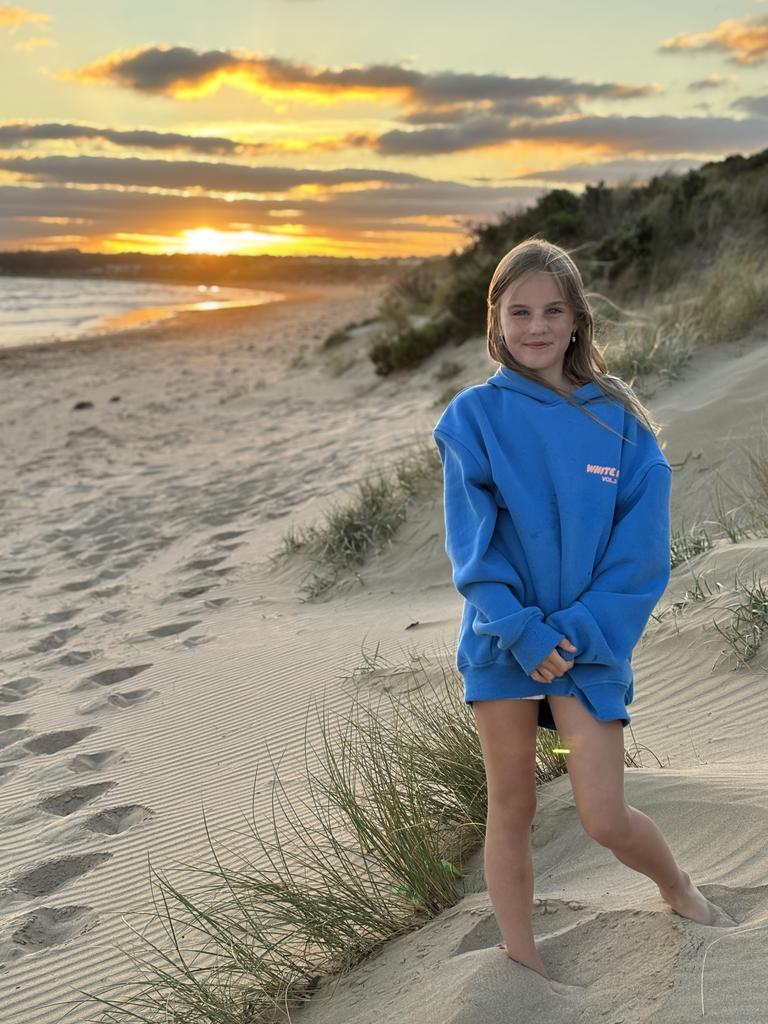Australia’s youngest homeowner buys first house with teen siblings
Meet Ruby McLellan, Australia’s pint-sized property investor, who along with her brother and sister turned pocket money into a house deposit – how did she do it?

READING LEVEL: GREEN
Many kids would have a hard time understanding what terms like “property investment*”, “landlord*” and “positive gearing*” mean.
But for eight-year-old Ruby McLellan, they represent years of saving pocket money and saying no to toys and treats to earn the title of “Australia’s youngest homeowner”.
Ruby and her siblings, Angus, 14, and Lucy, 13, bought their first property together two years ago in Clyde, southeast of Melbourne, for $671,000.
Today, the four bedroom home is worth just under a million dollars at about $960,000.
HOW THREE KIDS BOUGHT A HOUSE
The siblings’ hard-earned pocket money came from helping their parents around the house and packing book orders of their father’s how-to guide to investing. Combined they ended up with a $6000 deposit*.
CEO of property investment company OpenCorp, their dad Cam McLellan said kids today would need the “bank of mum and dad” to afford property – which was all the more reason to get started at an early age.
“The sooner you can get started, the better, because property prices will only continue to go up because we’ve got a huge undersupply* of housing in Australia,” Mr McLellan told news.com.au.
“The sooner a young person can get into the property market, the lower the deposit they have to save.”

HELP UP THE LADDER
While Mr and Mrs McLellan covered the rest of the deposit for the house, they guided their children through the process to teach them about “smart investing”.
The 200 sqm property is now positively geared – meaning the rent is higher than the mortgage* repayments* and it doesn’t cost the family “anything” to hold.
“What I did with the kids is we went through step-by-step on how to pick the best investment,” Mr McLellan said.
“There are 10.6 million properties in Australia, so how do you get the best one every time?
“I took them through that process, which is knocking out capital city markets, which are not good for investment. Then finding the best growth corridor* based on the infrastructure*, population growth, and supply, and then the optimum* size and quality property for that specific area … the whole concept was about teaching them the process of smart investing.
The proud dad said that Ruby was “surprisingly (knowledgeable) for an eight-year-old”.
“The other day she asked me about when you sell the property, how much money is left over, and I was explaining to her tax requirements to be paid and those sorts of things,” Mr McLellan said. “Even as an eight-year-old, she’s getting a grasp of the concept of buying and selling property.”

THE LONG-TERM PLAN
The family will keep the property in trust* until the two eldest, Lucy and Angus, are in their early 20s, which will mean they’ve waited one “full growth property cycle” and hope it will reach $1 million.
Once sold, the children will receive an equal portion of the profit* after tax to set them up for future investments.
Currently, the children are beneficiaries* of money coming out of the trust and don’t physically own the property themselves, although their names are on the title.

GETTING STARTED
Mr McLellan said he wanted to pass on his knowledge to his kids.
He decided to write the best-selling book My Four-Year-Old the Property Investor and shared his best advice for fellow young prospective* buyers.
“It’s obviously daunting* for young people to save that huge deposit,” he said. “Break it down into bite-sized chunks of things you can do, so ‘how much can I save in the next three months?’ and set yourself small goals to achieve, rather than going, ‘I’ve got to save $120,000’.”
Even with a solid savings plan, Mr McLellan predicted that most young people will have to sacrifice*.
“The spending of young people nowadays is astronomical* compared to 20, 30 years ago when I was growing up,” he said.
“I never went to a cafe till I was 25, I sold my car and rode a bike for nine months to get my first deposit, so the sacrifices are real that you have to make.”
POLL
GLOSSARY
- property investment: real estate property bought with the intention of earning a return on investment (ROI), or profit
- landlord: person who person who owns a building or an area of land and is paid by other people for the use of it
- positive gearing: when you are making more money from an investment property than it costs you in expenses
- deposit: saved money you contribute toward the purchase price of a property, usually a minimum of around 10-20 per cent of the total purchase price
- under supply: inadequate supply, a lack or shortage of something
- mortgage: a type of loan where you borrow money to purchase or maintain a home, plot of land, or other types of real estate
- repayments: an amount of money paid in regular instalments in order to repay a debt
- growth corridor: areas or suburbs chosen or identified for development and investment
- infrastructure: basic facilities and services, such as water, power, roads, transport and schools
- optimum: the best or most favourable point, degree, amount
- held in trust: when something value is protected by an organisation or group of people on behalf of other people
- profit: an amount of money you gain when you are paid more for something than it cost you to make, get, or do it
- beneficiaries: people who receive money or benefit as a result of something else
- prospective: likely to be or become something in the future
- daunting: intimidating, overwhelming, a little worrying because something is hard
- sacrifice: giving up something you value, usually to try to get something else as a result
- astronomical: huge, very large, enormous
EXTRA READING
Levi rules in junior business world
Call for money lessons in schools
Molly’s message is changing the world
QUICK QUIZ
- What was the purchase price of the home the McLellan kids bought together with their parents and what is its current estimated value?
- How did the kids earn their pocket money?
- What was the deposit total from the three siblings’ combined savings?
- Name five factors that Ruby’s dad Mr McLellan includes as part of the process for smart property investing?
- What will happen when the property is sold?
LISTEN TO THIS STORY
CLASSROOM ACTIVITIES
1. Smart savings
This Kids News article makes a lot of great points about how the younger you are, the smarter it is to start saving for a house deposit if you ever want to own your own home.
Think about some of the more extravagant things you might do now, that you could perhaps forgo if you were putting away your pocket money into a savings account.
Some of these small sacrifices could add up and get you on your way to a good savings plan for when you are ready to invest. Write down five to 10 ideas of how you could make some small sacrifices to start your savings goal:
–
–
–
–
–
–
–
Time: allow 20 minutes to complete this activity
Curriculum Links: English, Mathematics, Personal and Social, Critical and Creative Thinking
2. Extension
If you and your siblings could afford to buy a property in the near future, where’s a place that you think might have good investment growth as advised in the Kids News article?
If you were to buy a house now for $500,000, how much might it be worth when you are 18?
Time: allow 10 minutes to complete this activity
Curriculum Links: English, Mathematics, Personal and Social, Critical and Creative Thinking
VCOP ACTIVITY
Creative vocabulary
Find a bland sentence from the article to up-level. Can you add more detail and description? Can you replace any “said” words with more specific synonyms?
Have you outdone yourself and used some really great vocabulary throughout your writing? Firstly, well done. Secondly, let’s ensure everyone can understand it by adding a glossary of terms. Pick three of your wow words and create a glossary for each word to explain what it means.

